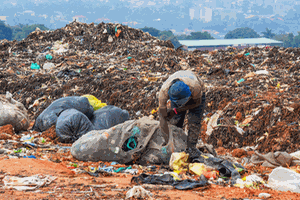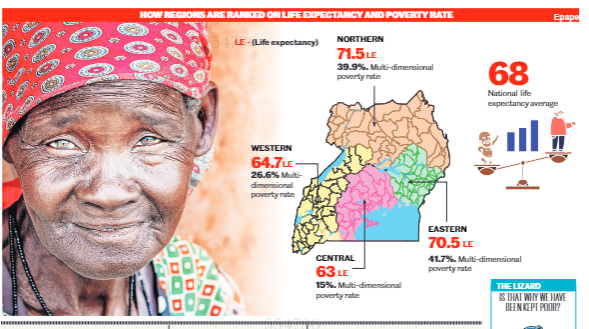Prime
Former Ethiopian first lady Zenawi take-over seeks to juice up Soroti Fruit Factory

The Soroti fruit factory. PHOTO/SIMON PETER EMWAMU
What you need to know:
- Soroti Fruit Factory administrators say they now have more resources than before.
A team from the Office of the Prime Minister, led by the state minister for Teso Affairs, expressed satisfaction with the improvements at the Soroti Fruit Factory compared to previous years.
Mr Clement Ongalo Obote, the state minister for Teso Affairs, told this publication on Wednesday last week that following President Museveni's decision to lease the plant to former Ethiopian First Lady, Ms Meles Zenawi, a private investor, production figures have shown promising growth.
By September 2024, the factory had processed juice from 128 metric tonnes of fruit, a significant increase from the 29 metric tonnes processed throughout 2023.
Mr Ongalo noted that the factory is now struggling with storage space due to increased production, reflecting a higher level of commitment from the new management.
"The President has dedicated much of his time to this factory, which is why he decided to lease it to a private investor. The government's priority is not profit, but ensuring that farmers are happy," he said.
He added that the government encouraged farmers to grow citrus as a replacement for the cotton and cattle economy that once defined Teso.
To maintain these gains, Prime Minister Robinah Nabbanja, tasked by President Museveni to oversee the plant’s lease, will also visit the factory to stay updated on the progress.
“The investor, Ms Zenawi, presented a solid workplan. If fully implemented, it will transform the Soroti Fruit Plant,” Mr Ongalo emphasised.
Mr Desta Abera, the General Manager of the Soroti Fruit Factory and a member of the Zenawi group, revealed that additional staff from the group would soon arrive to oversee the financial department.
He highlighted their recent successes, including the ability to export juice to DR Congo, South Sudan, and Kenya.
"The changes in the production department are a result of improvements in human resource management," Mr Abera explained.
He also noted that sales performance would determine the quantities of fruit they purchase from local farmers.
One of the major achievements has been reducing the cost of processing one kilogramme of oranges from Shs7,000 to Shs4,000, with hopes to lower it further.
"We aim to bring the cost down to something more manageable," he hinted.
However, Mr Abera pointed out that high power consumption remains a challenge, but efforts are underway to address this with better technology.
He also shared that new product, including a mango and orange juice blend, are performing well in the market.
Mr Julius Martin Ekoom, the chief executive officer of the Soroti Fruit Factory, confirmed that they now have more resources than before, though he did not specify whether these funds are from the government or the private investor.
He credited the recent increase in production to additional technical staff.
"We want to clear the entire stock of pulp and concentrate before the next harvest season, which is two months away," Mr Ekoom said.
He also informed the minister that an agreement has likely been signed between the majority shareholder, Uganda Development Corporation (UDC), and the new private owners, although some details are yet to be finalised.
Since its inauguration in 2019, the US$14m Soroti Fruit Factory had been considered a 'white elephant' by many farmers, as it failed to deliver significant benefits.
In 2022, the factory purchased only 500,000 kilogrammes of oranges and 200,000 kilogrammes of mangoes, despite farmers having approximately eight million trees.
This frustration prompted the government to lease the plant to a private investor.
UIA warns of land reallocation
Regarding land for the factory’s expansion, Uganda Investment Authority’s regional officer, Ms Palma Keuber, warned that undeveloped land allocated to investors at the Soroti Industrial Park might be reallocated to more serious developers.
Ms Keuber explained to the minister that out of 219 acres available, only four of the 25 investors who were granted land had begun development.
"The slow or lack of commitment by these investors is concerning," she said, adding that land would be reassigned to those who show real potential.
She added that despite the government's efforts to encourage land use in line with its industrialisation policy, little progress has been made.
The Soroti Resident City Commissioner, Mr Peter Pex Paak, called for timelines to be imposed on investors to develop their allocated land.
He mentioned that the Soroti Youth Skilling Centre, part of the Presidential Initiative, also requires additional land for recreational purposes.



